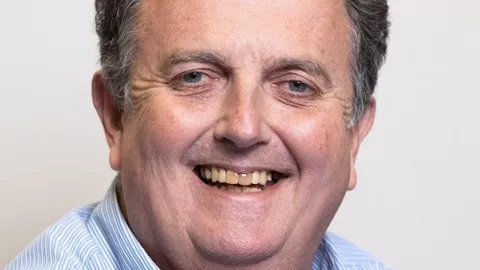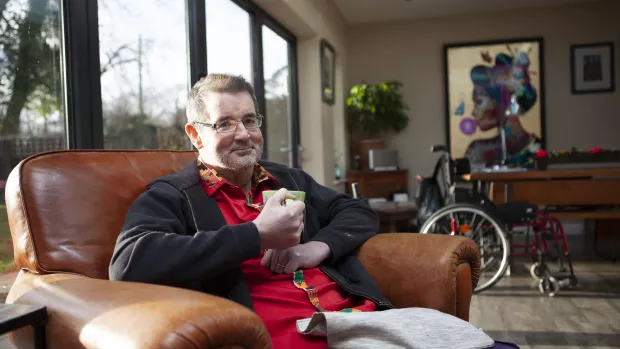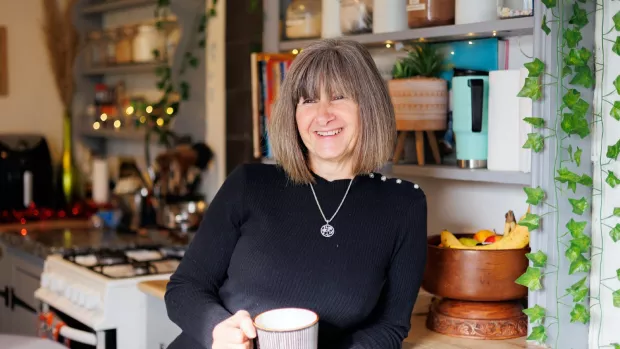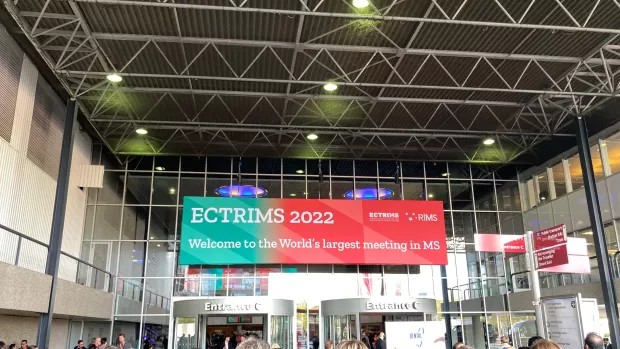
I hope the UK MS Register will speed up future discoveries
I’ve lived with MS for more than half my life, it’s now secondary progressive. When I was diagnosed back in the 1980s, aged 29, there weren’t any disease modifying therapies (DMTs). And no one really knew how many people had MS in the UK.
I was shocked we didn’t have that data. How could anyone plan services if we didn’t know this? Why wasn’t the true social and economic cost of MS known?
Now, thanks to the UK MS Register we know so much more.
Diving into MS research
I joined the MS Society a month after I was diagnosed. I found it comforting there was source of information about MS out there. Getting information is key for me.
When volunteering opportunities came up, I took them. One of the first things I did was join an early scheme to buddy up with MS researchers. I got to meet some of the leading people in the field. (Find out more about our current Research Network.)
By getting involved in research I hope I’m facilitating others brainier than me to find a cure. I gave up biology aged 13 - but I can now tell you all about oligodendrocytes!
I’ve seen the UK MS Register go from idea to reality
I was a volunteer when the idea of the UK MS Register was born, and went on to help test the design before it went live. I’m now a volunteer member for the UK MS Register Executive Board. The Board helps make sure the Register is effective, efficient and uses its money wisely.
I’m also someone who still submits my data regularly, like thousands of other people with MS. One of the best things about the Register is that you can give permission for your clinical records to be linked to the data you submit yourself. This provides researchers with very rich, long-term and anonymous data.
Getting data is vital
Data can help the NHS plan properly. We saw the benefits of the Register during the pandemic. Researchers could quickly get information on who with MS had COVID-19, who had the vaccine, and other critical information. All this was anonymous, but they knew the numbers. So they could inform the MS world and the government about how COVID-19 was affecting people with MS.
Looking to the future, the Register can help more clinical trials to recruit people. Researchers don’t know what causes MS. I hope that one day the Register might help them find the answer.
I hope it’ll speed-up future discoveries that could stop MS. I feel optimistic about treatments for progressive MS.
What stopping MS means to me
When I was diagnosed I felt I’d been given a life sentence of uncertainty. I cried a lot. It was such a critical time for me – I was a single bloke with a new job, living in a new town. After my diagnosis, all I could think of was wheelchairs. Back then, it seemed the only thing I could control was when I left this planet.
MS affected everyone around me too. My parents built a downstairs shower in their house, in case I needed to move back in (I never did). When I met my wife, I didn’t want to get married because I wanted her to be able to leave if she wanted to. It took me ten years to propose. I couldn’t have found anyone better, but without MS we’d have been married 10 years more!
33 years on I’m sitting here in a wheelchair, and I’m still alive. I’ve come to terms with uncertainty over the years. And because of my volunteering with the Register I’ve had some amazing experiences, including talking at Parliament and going to a reception at 10 Downing Street.
But to stop people going through the uncertainty of MS in the first place would be brilliant. I see volunteering with the Register as my way of fighting back and controlling my condition.
Get support
Our MS Helpline gives emotional support to anyone affected by MS. Call 0808 800 8000 for free or email [email protected]. We’re here Monday to Friday, 9am to 7pm except bank holidays.
For emotional support 24 hours a day, you can also call Samaritans on 116 123.




